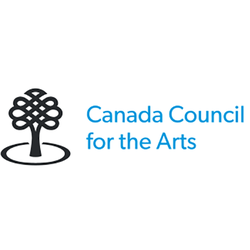
CHRC — Student Work Placement Program (SWPP)
At a glance
- Maximum amount : 5,000 $
- Up to 50% of project cost
- Unspecified
- Arts, entertainment and recreation
- Canada
- Non-profit
- Public or Parapublic institution
- For-profit business
- Sole proprietorship
- Social economy enterprise
- All revenue ranges
- All organization sizes
- Youth (<40)
- Culture and Arts
- Higher Education
- Employment and Training
- Diversity and Inclusion
- Artists / creatives
- Academia / students
- All structures
- National
Overview
The Student Work Placement Program (SWPP) offers funding to arts and culture employers to create paid work-integrated learning opportunities for post-secondary students, with a maximum subsidy of up to 70% of wages or $7,000 per placement for priority group students. Eligible activities include roles across various cultural sectors, such as Digital Media, Film and Television, and more, with the flexibility of remote work allowed.
Activities funded
The CHRC Student Work Placement Program (SWPP) funds activities that create paid, work-integrated learning opportunities for students in the cultural sector. These activities aim to provide students with the skills and experience needed for employment post-graduation.
- Establishing partnerships between arts and culture employers and post-secondary institutions to facilitate student placements.
- Developing and implementing paid internship or co-op positions in fields such as digital media, film and television, and live performing arts.
- Creating remote work opportunities for students to gain experience in music and sound recording, visual arts and crafts, writing and publishing, and heritage sectors.
- Supporting projects that involve students in the development of digital or media content relevant to their field of study or interest.
- Facilitating cross-discipline placements where students from non-arts fields, such as computer science, work in cultural settings, e.g., website development for cultural organizations.
Eligibility
Eligibility for this grant is determined by specific requirements related to the employer's profile and their engagement in the cultural sector.
- The employer must be part of the cultural sector, which includes digital media, film and television, live performing arts, music and sound recording, visual arts and crafts, writing and publishing, and heritage sectors.
- The employer must be willing to create paid work-integrated learning opportunities for post-secondary education students.
- The employer should partner with post-secondary education institutions to facilitate these placements.
- The employer must be capable of paying the student wages, for which they can receive reimbursement through the program.
- The employer can offer remote working opportunities as part of the placement.
Who is eligible?
This grant supports partnerships between arts and culture employers and post-secondary education institutions to create quality work-integrated learning opportunities for students. Cultural sector employers are eligible to apply, including those in digital media, film and television, live performing arts, music and sound recording, visual arts and crafts, writing and publishing, and heritage. Students do not need to have a field of study related to arts and culture to participate in the program.
Eligible expenses
The grant reimburses employers for a portion of student wages as part of the work-integrated learning placement.
- Reimbursement of up to 50% of the student’s wages per placement (maximum $5,000).
- Reimbursement of up to 70% of the student’s wages for students from priority groups (maximum $7,000).
Eligible geographic areas
This grant does not specify eligible geographical areas for companies applying. It is assumed to be open to all Canadian cultural sector employers based on the context provided.
- No specific geographical limitations mentioned; applicable nationwide in Canada.
How to apply
Review Eligibility Criteria
- Ensure your organization is a recognized Canadian cultural sector employer.
- Verify the role offered can accommodate a student through work-integrated learning opportunities.
Contact Administrative Officers
- Reach out to Kevin Gorchakov, Marwa Alibakhiet, or Nicola Schneider for any specific queries.
- Utilize provided email addresses to gain further insights or clarifications.
Complete the Application Form
- Obtain the 2024-2025 Application Form for the SWPP.
- Provide detailed information on the partnership with a post-secondary institution.
- Include specifics about the work placement opportunity and expected outcomes.
Gather Required Documentation
- Assemble necessary documents indicating student’s field of study, placement terms, and employer details.
- Prepare to substantiate claims of the student’s eligibility for priority group benefits.
Submit Application
- Send the completed application form along with all supporting documents to the designated SWPP contact.
- Ensure submission is before any specified deadlines to secure consideration.
Await Confirmation
- Receive an acknowledgment of receipt from the SWPP officials confirming the application has been received.
- Retain all correspondence for future reference.
Additional information
Here are additional relevant details for this grant:
- The SWPP encourages partnerships specifically between arts and culture employers and Post-Secondary Education (PSE) institutions.
- Employers from diverse cultural sectors, including digital media and live performing arts, are highlighted to participate.
- Students do not need to be studying in a field directly related to arts and culture, allowing for versatile placement opportunities integrating various fields, such as technology support in cultural projects.
- The wage subsidy differs if the student is part of a priority group, indicating targeted support for certain demographics.
- Remote work opportunities are permissible under the program, offering flexibility for both employers and students.
Frequently Asked Questions about the CHRC — Student Work Placement Program (SWPP) Program
What is the CHRC — Student Work Placement Program (SWPP)?
How much funding can be received?
Who is eligible for the CHRC — Student Work Placement Program (SWPP) program?
What expenses are eligible under CHRC — Student Work Placement Program (SWPP)?
Who can I contact for more information about the CHRC — Student Work Placement Program (SWPP)?
Where is the CHRC — Student Work Placement Program (SWPP) available?
Is the CHRC — Student Work Placement Program (SWPP) a grant, loan, or tax credit?
More programs like this

International Single Sport Events - Hosting Program
Canadian Heritage
Creative Export Canada (CEC) — Export-Ready Stream
Canadian Heritage
Explore and Create — Concept to Realization
Canada Council for the Arts (CCA)
International outreach — Travel
Canada Council for the Arts (CCA)
Creative Export Canada (CEC) — Export Development Stream (EDS)
Canadian Heritage
Sports Support Program - Community Sports for All Initiative
Canadian Heritage
Arts Abroad — Residencies
Canada Council for the Arts (CCA)
Supporting Artistic Practice — Sector Innovation and Development
Canada Council for the Arts (CCA)
Engage and Sustain — Artistic Institutions
Canada Council for the Arts (CCA)